Christos
Should be "crustose"
Christos
Should be "crustose"
i
not capitalized, should be "I"
crostus coralline
should be "crustose coralline"
Vicorethrin
Now it got it wrong
phychoetherin
This one was wrong in the reference transcript too. It should be Phycoerythrin.
even though Hash.ruby2_keywords_hash?(args.last) returns true. 🤯 And this statement (from #366): # If the last argument is Hash, Ruby will treat only symbol keys as keyword arguments # the rest will be grouped in another Hash and passed as positional argument. doesn't seem to be correct, at least in Ruby 3.0.
This feature is available only in Chrome, not Chromium.
Really? It's working for me in ungoogled-chromium
And with diagrams as text close to the code chances are they will be kept to up to date (and created to begin with…).
It is handy to manually generate the diagram from times to times using the previously created command: npm run db:diagram:generate. Though, getting the diagram to update itself on its own automatically without a developer interaction would ensure that it the diagram is never obsolete. There are several ways of doing this.You could use a pre-commit git hook or even better simply configure your CI/CD pipeline(s) to run the npm script whenever something gets merged into the main branch 🙂
When it comes to showing up somewhere in your documentation a diagram describing your SQL database, you often end up with a recurring problem : after a few days / weeks / months, the diagram you made became obsolete.
Do you really need those lines? Isn’t it clear enough? Well, I still find comments like this in a lot of cases and it gets funnier when the comment is obsolete and the code is doing other things. Following the example, let’s imagine that another developer adds support for PUT method. I think that this is what would happen.
Barnes, O., & Payne, S. (2021, October 15). Covid testing suspended at private UK lab over potentially inaccurate results. Financial Times. https://www.ft.com/content/bee7bdde-e37b-4411-afd5-1e8ceacfa5f8
ReconfigBehSci. (2022, January 6). RT @GidMK: Perhaps unsurprisingly, this is an absolutely awful study filled with issues and numeric mistakes https://t.co/hvEv5gMMn2 [Tweet]. @SciBeh. https://twitter.com/SciBeh/status/1478987492552589314
Peter R. Hansen. (2022, February 3). Weighting, is the answer. The only study to find lockdowns ⬆️mortality is given weight 91.8% = 7390/8030, and then you get -0.2% to be the estimate. To summarize: -0.2% META-STUDY ESTIMATE is based on 91.8% ONE STUDY and 8.2% ALL OTHER STUDIES. https://t.co/j6e7ziPNAI [Tweet]. @ProfPHansen. https://twitter.com/ProfPHansen/status/1489366528956919808
Cut a dado groove with a 3/4” diameter router bit and you’ll almost certainly have a too-loose joint when you try to plug some 3/4” plywood in place. Under the guise of metrification, sheet material thicknesses have all shrank enough to cause problems with joinery if you rely on the old, Imperial thickness designations. And besides, material thickness varies enough from sheet to sheet that it can make a difference when it comes to prominent joinery. This is even true in the USA that still uses Imperial more or less exclusively. Sheet goods remain thinner than their name specifies.
Vaccine inventor questions mandatory shot push, Biden’s Covid-19 strategy
Overall scientific credibility: 'low', according to scientists who analyzed this article.
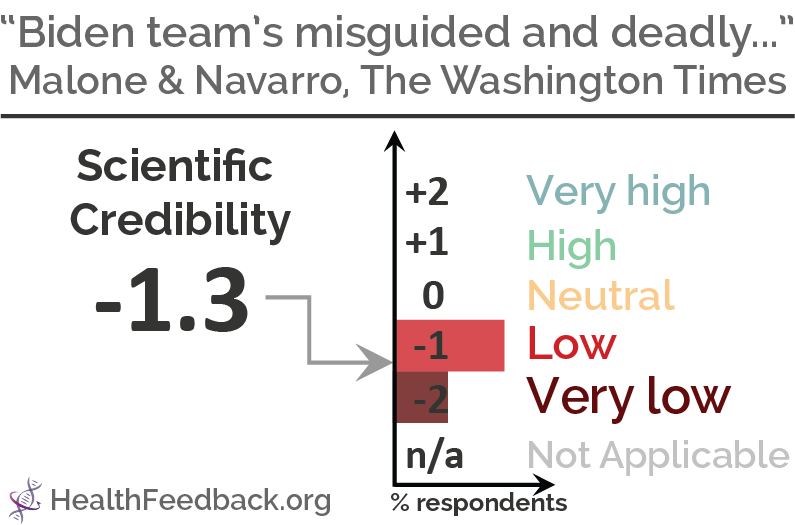
Find more details in Health Feedback's analysis
‘Unsettled’ Review: The ‘Consensus’ On Climate
Overall scientific credibility: 'very low' according to the scientists who analyzed this article.
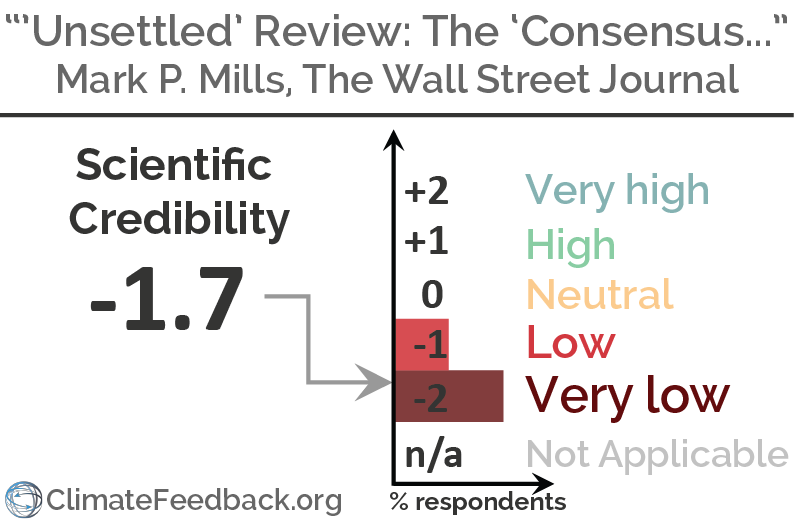
Find more details in Climate Feedback's analysis
‘I’m ridiculously positive about the media’s coverage of COVID-19.’ (n.d.). RSB. Retrieved February 13, 2021, from https://www.rsb.org.uk//biologist-covid-19/189-biologist/biologist-covid-19/2568-fiona-fox-interview
Are We Doomed?
Overall scientific credibility: 'very low' according to the scientists who analyzed this article.
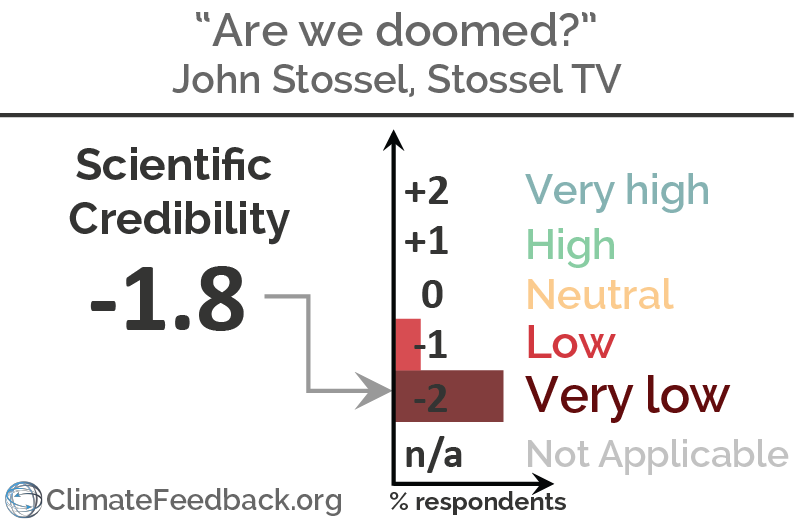
Find more details in Climate Feedback's analysis
Sprockets 4: The effect of config.assets.debug does not match the rails documentation.
This appears to be an undocumented breaking change. For example, the word "debug" does not appear in the sprockets 4 changelog.
The docs say: "When using Rails and Sprockets in development mode, no assets are concatenated."
Study Disputes That Earth Is in a ‘Climate Emergency’
Overall scientific credibility: 'very low' according to the scientists who analyzed this article.
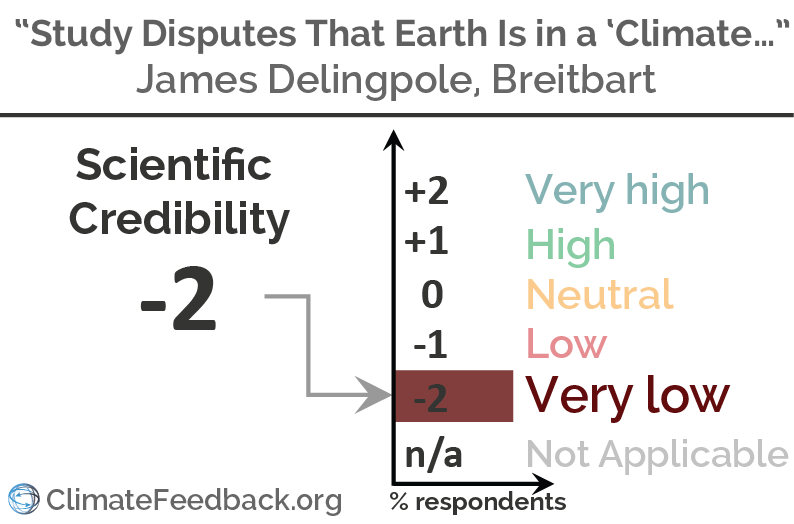
Find more details in Climate Feedback's analysis
Israeli Covid chief’s claim single vaccine dose less effective ‘inaccurate’. (2021, January 22). The Guardian. http://www.theguardian.com/world/2021/jan/22/israeli-covid-chiefs-remarks-on-vaccine-inaccurate-say-officials
Earth's climate is 'cyclical' as new study claims an ice age is coming
Overall scientific credibility: 'very low' according to the scientists who analyzed this article.
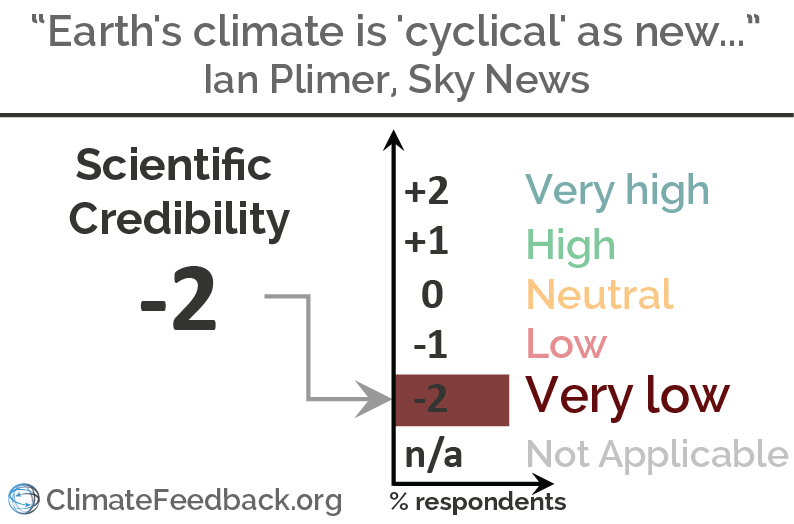
Find more details in Climate Feedback's analysis
Sky News. ‘Coronavirus: UK Records Highest Daily Number of COVID-19 Cases for Nearly Two Months’. Accessed 12 August 2020. https://news.sky.com/story/coronavirus-uk-records-highest-daily-number-of-covid-19-cases-for-nearly-two-months-12047385.
Twitter. (n.d.). Twitter. Retrieved June 12, 2020, from https://twitter.com/jamesheathers/status/1271058689970114560
Climate Change: What Do Scientists Say?
Overall scientific credibility: 'very low' according to the scientists who analyzed this article.
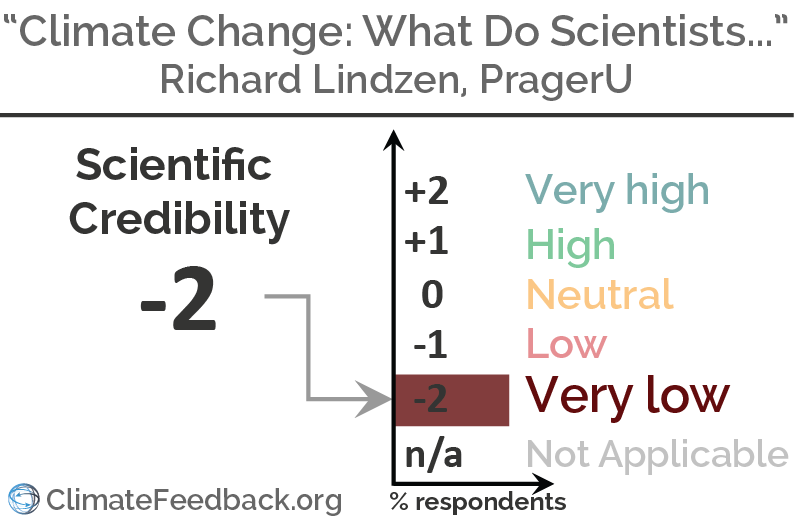
Find more details in Climate Feedback's analysis
A real-world example of this would be an e-commerce site that allows users to “hold” items in their cart while they’re using the site or for the duration of a session. In this scenario, the technical cookies are both necessary for the functioning of the purchasing service and are explicitly requested by the user when they indicate that they would like to add the item to the cart. Do note, however, that these session-based technical cookies are not tracking cookies.
I'm not sure I agree with this:
[the technical cookies] are explicitly requested by the user when they indicate that they would like to add the item to the cart.
The only thing they requested was that the item be held in a cart for them. They didn't explicitly request that cookies be used to store information about items in the cart. They most likely don't understand all of the options for how to store data like this, and certainly wouldn't know or expect specifically that cookies be used for this.
In fact, localStorage could be used instead. If it's a single-page app, then even that would be necessary; it could all be kept in page-local variables until they checked out (all on the same page); such that reloading the page would cause the cart data held in those variables to be lost.
How "Invisible Captcha" Works Invisible Captcha, or reCAPTCHA, requires end-users to click a button that says "I'm not a robot" and Google can determine whether to prompt the user with additional question (i.e. select pictures that best describe X) to verify if that person is in fact not a robot.
That's not accurate. Invisible Captcha is only one kind of reCAPTCHA. The terms are not simply interchangeable, as is implied here.
From https://www.google.com/recaptcha/admin/create, we can see 2 main reCAPTCHA types:
And these subtypes for reCAPTCHA v2:
a complete snapshot of the user's browser window at that moment in time will be captured, pixel by pixel.
Is this even technically possible?
If it were:
an additional reCAPTCHA-specific cookie will be added to the user's browser
It appears to actually set a non-reCAPTCHA-specific cookie:
NID — This cookie is set by DoubleClick (which is owned by Google) to help build a profile of your interests and show you relevant ads on other sites. The main purpose of this cookie is: Targeting/Advertising. (cookiepedia)
Let’s not pollute minds with carbon fears
Overall scientific credibility: 'very low' according to the scientists who analyzed this article.
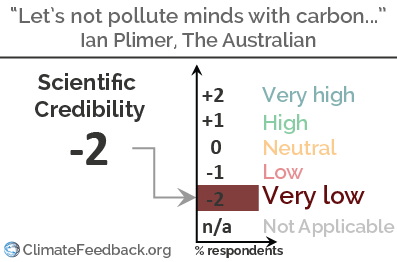
Find more details in Climate Feedback's analysis
Climate change: fake news or global threat? This is the science RUM.mark( 'content_load_fmp' ); Save
Overall scientific credibility: 'very low' according to the scientists who analyzed this article.
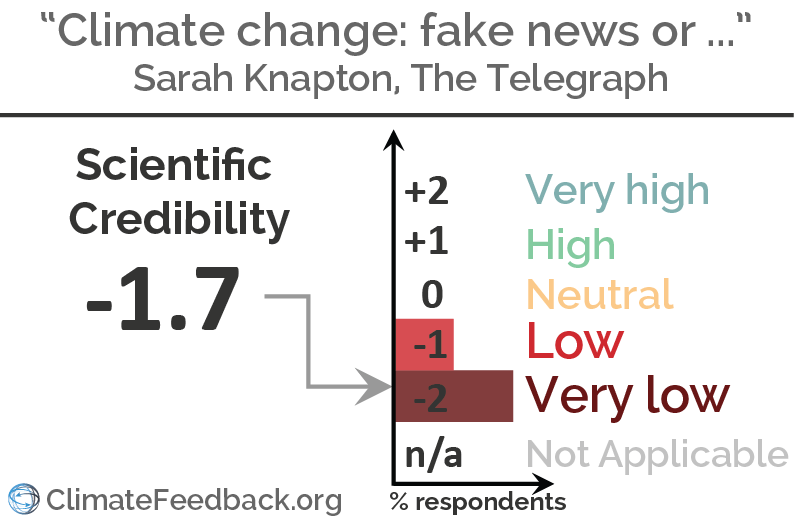
Find more details in Climate Feedback's analysis
2 European Climate Declaration September 26, 2019There is noclimate emergency
Overall scientific credibility: 'very low' according to the scientists who analyzed this article.
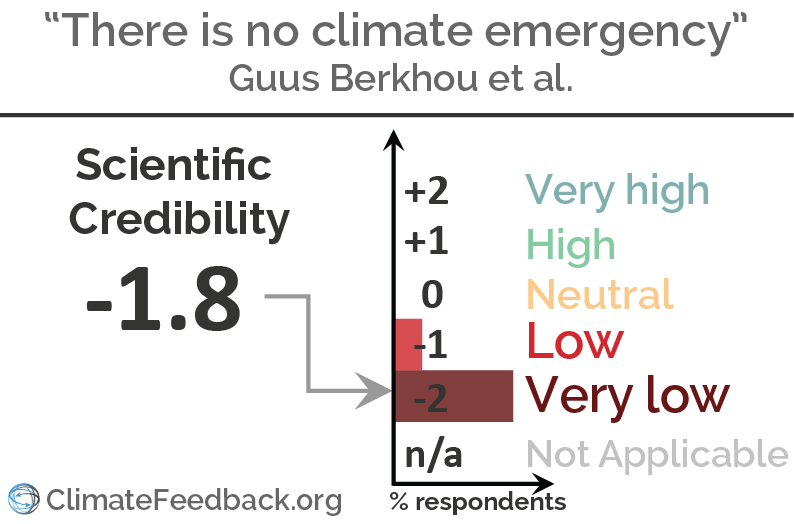
Find more details in Climate Feedback's analysis
In the long run, it probably makes no difference how badly we overshoot two degrees
Potential interactions among the tipping elements of the Earth system could generate tipping cascades. The far we stay below the 2ºC, the less likely it will be the occurrence of tipping cascades.
The great failure of the climate models
Overall scientific credibility: 'very low' according to the scientists who analyzed this article.
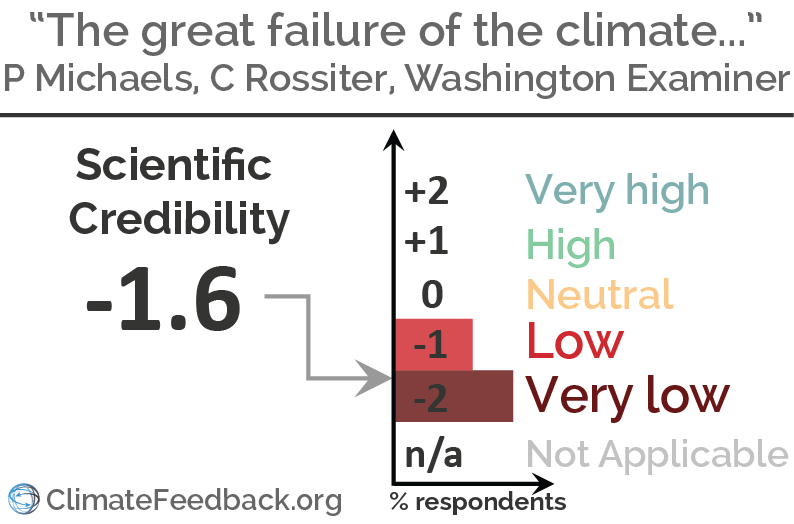
Find more details in Climate Feedback's analysis
The truth of climate change is revealed at school
Overall scientific credibility: 'very low' according to the scientists who analyzed this article.
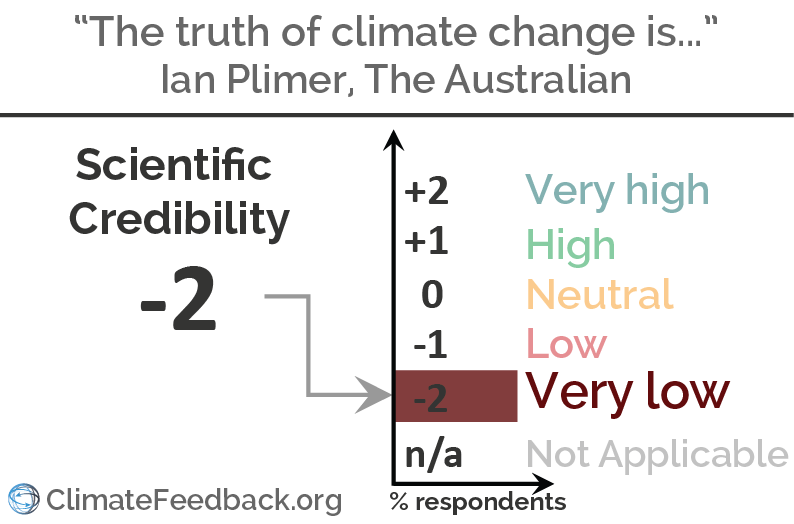
Find more details in Climate Feedback's analysis
Scientists Prove Man-Made Global Warming Is a Hoax
Overall scientific credibility: 'very low' according to the scientists who analyzed this article.
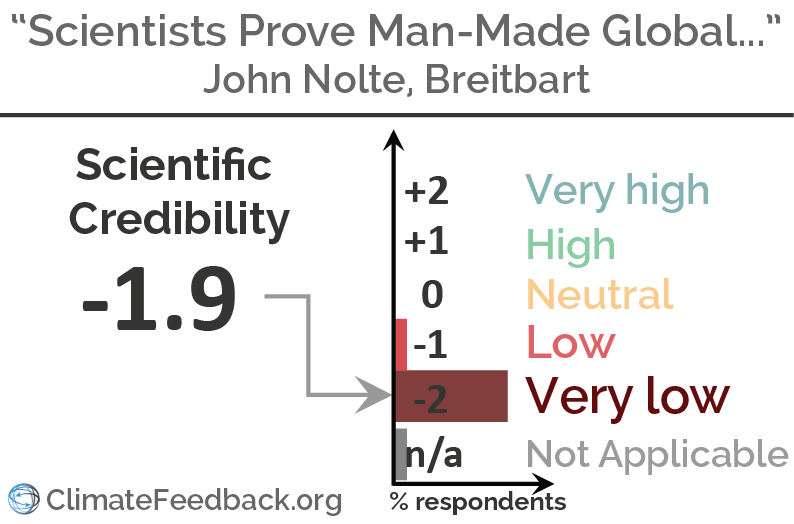
Find more details in Climate Feedback's analysis
Media Hysteria: Climate Change ‘Heat Records’ Are a Huge Data Manipulation
Overall scientific credibility: 'very low' according to the scientists who analyzed this article.
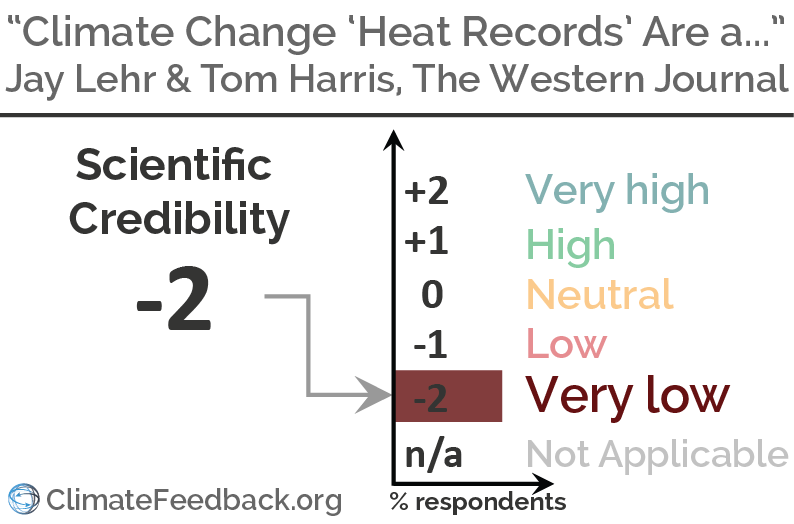
Find more details in Climate Feedback's analysis
Climate Science and the Myths of Renewable Energy
Overall scientific credibility: 'high', according to scientists who analyzed this article.
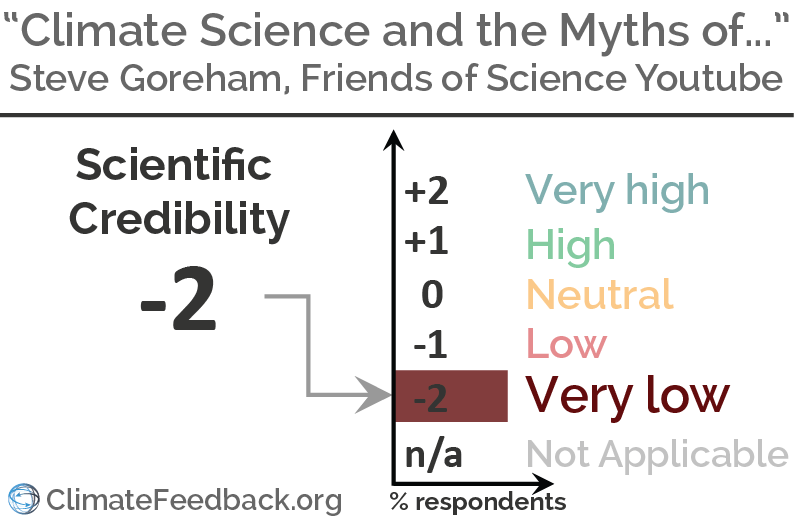
Find more details in Climate Feedback's analysis
World Health Organization Officially Declares Bacon is as Harmful as Cigarettes
Overall scientific credibility: 'low' to 'very low', according to scientists who analyzed this article.
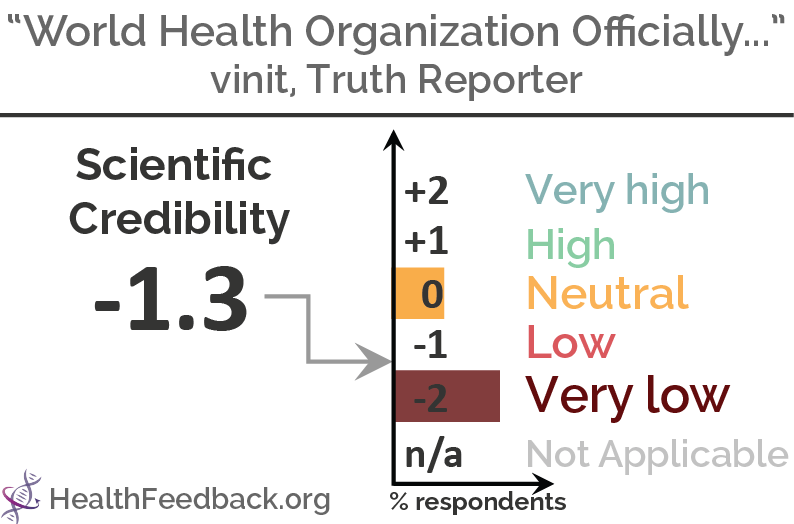
Find more details in Health Feedback's analysis
A growing number of scientists now believe solar activity is the real culprit behind so-called climate change.
This claim is inconsistent with science:

Find more details in Climate Feedback's analysis of this article
Repeat after me: carbon dioxide is good for us
Overall scientific credibility: 'very low', according to scientists who analyzed this article.
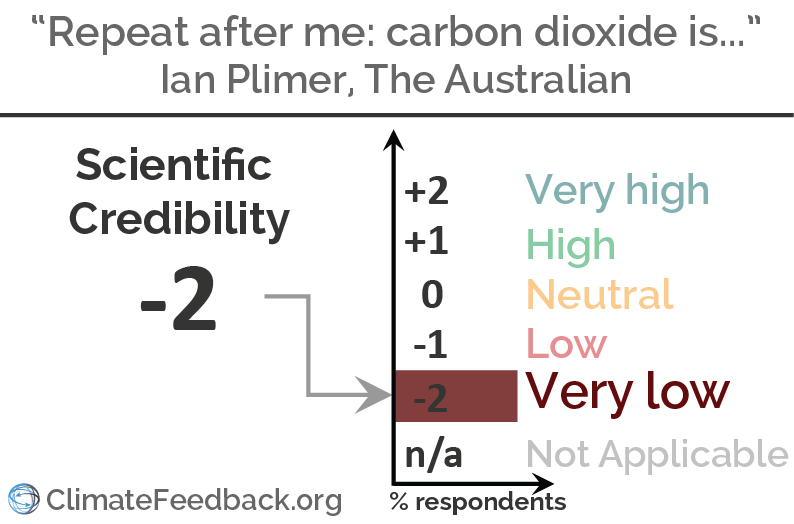
Find more details in the annotations below and in Climate Feedback's analysis
The Sea Is Rising, but Not Because of Climate Change
Overall scientific credibility: 'very low', according to scientists who analyzed this article.
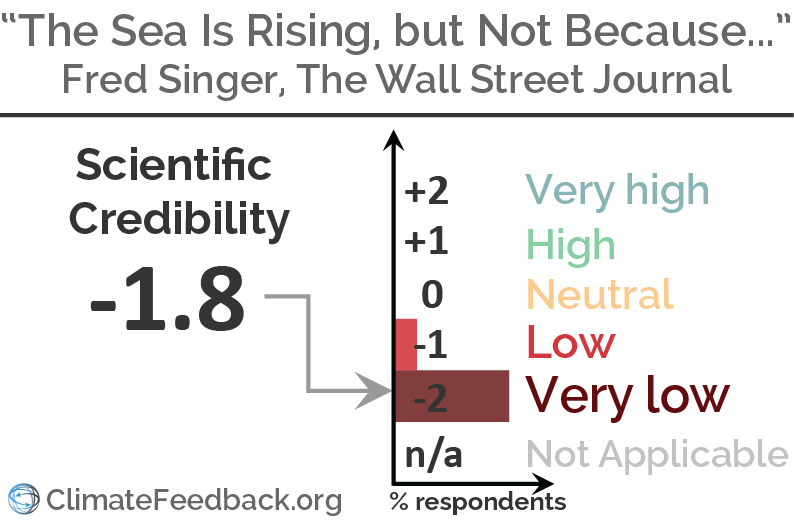
Find more details in the annotations below and in Climate Feedback's analysis
Misguided renewable energy policies will ruin nation
Overall scientific credibility: 'very low', according to scientists who analyzed this article.
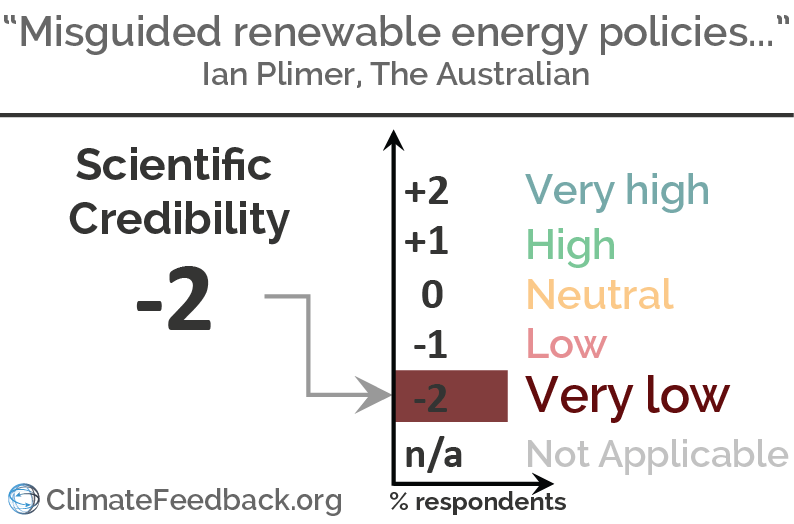
Find more details in the annotations below and in Climate Feedback's analysis
Climate Scientists: Climate Models Have Overestimated Global Warming
Overall scientific credibility: 'very low', according to scientists who analyzed this article.
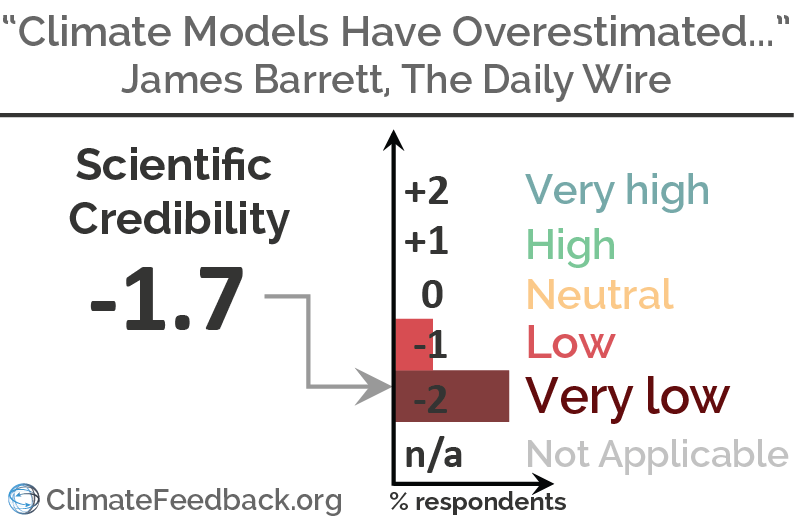
Find more details in the annotations below and in Climate Feedback's analysis
DELINGPOLE: ‘Nearly All’ Recent Global Warming Is Fabricated, Study Finds
Overall scientific credibility: 'very low', according to scientists who analyzed this article.
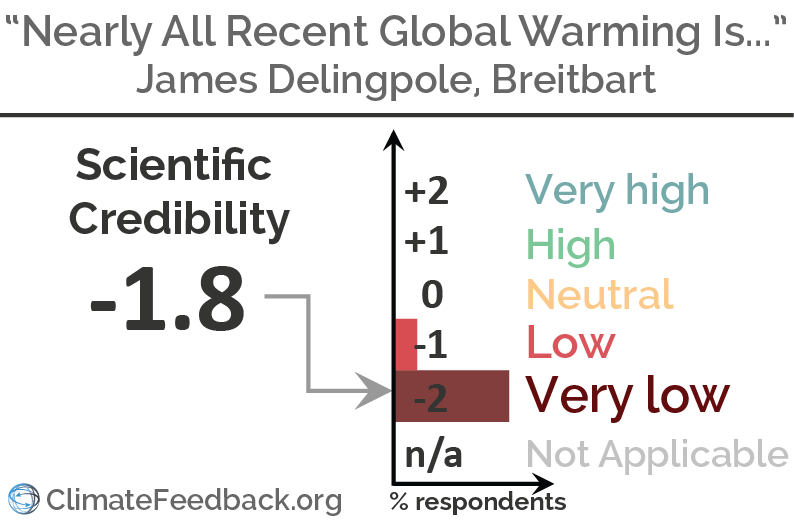
Find more details in the annotations below and in Climate Feedback's analysis
DELINGPOLE: ‘Global Warming’ Is a Myth, Say 58 Scientific Papers in 2017
Overall scientific credibility: 'very low', according to scientists who analyzed this article.
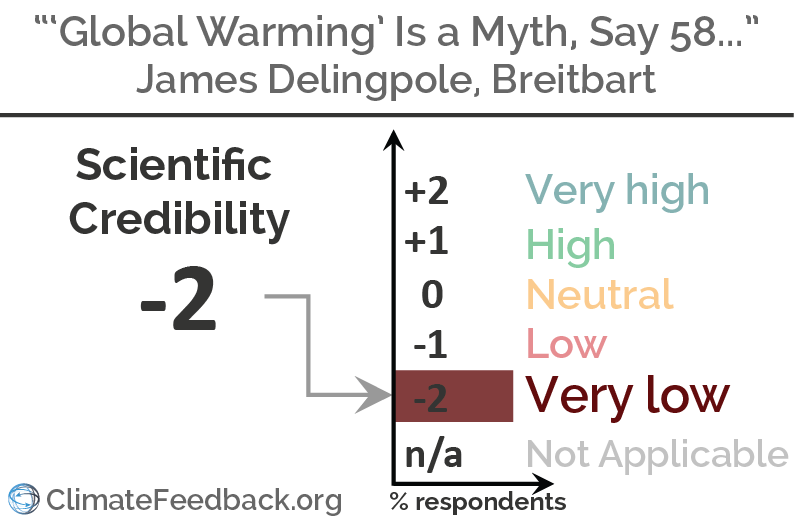
Find more details in the annotations below and in Climate Feedback's analysis
Trump should withdraw from Paris climate pact
Overall scientific credibility: 'very low', according to scientists who analyzed this article.
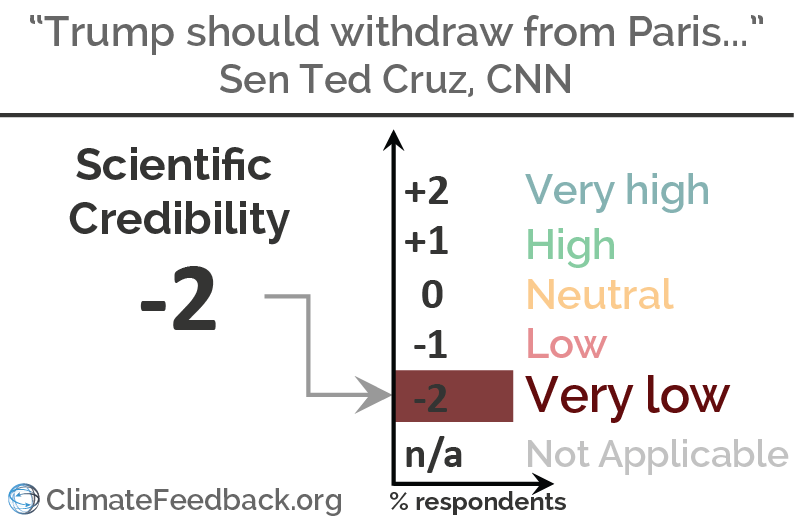
Find more details in the annotations below and in Climate Feedback's analysis
Global Quackery: Earth Has Not Warmed For Past 19 Years, New Study Finds
Overall scientific credibility: 'very low', according to scientists who analyzed this article.
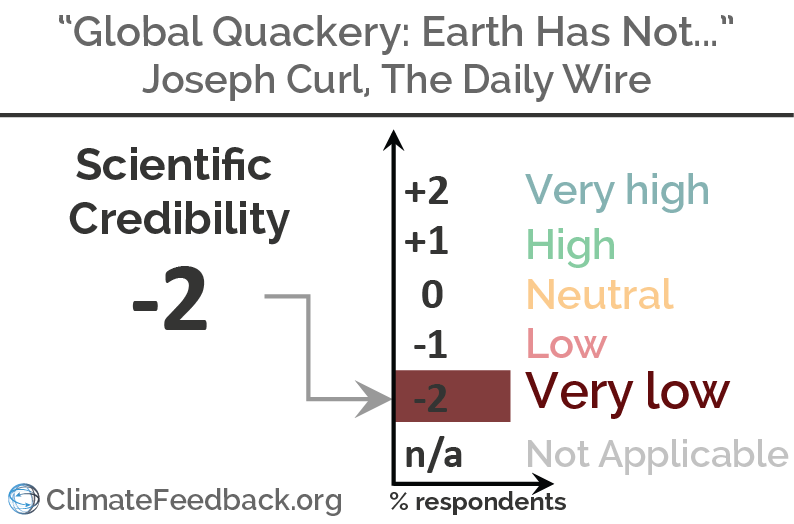
Find more details in the annotations below and in Climate Feedback's analysis
Another Arctic ice panic over as world temperatures plummet
Overall scientific credibility: 'very low', according to 7 scientists who analyzed this article.
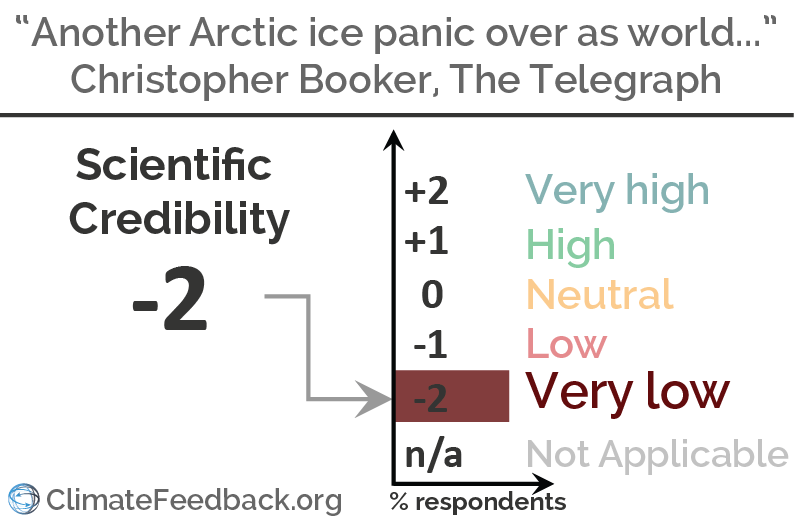
Find more details in the annotations below and in Climate Feedback's analysis
Why are climate-change models so flawed? Because climate science is so incomplete
Overall scientific credibility: 'very low', according to 9 scientists who analyzed this article.
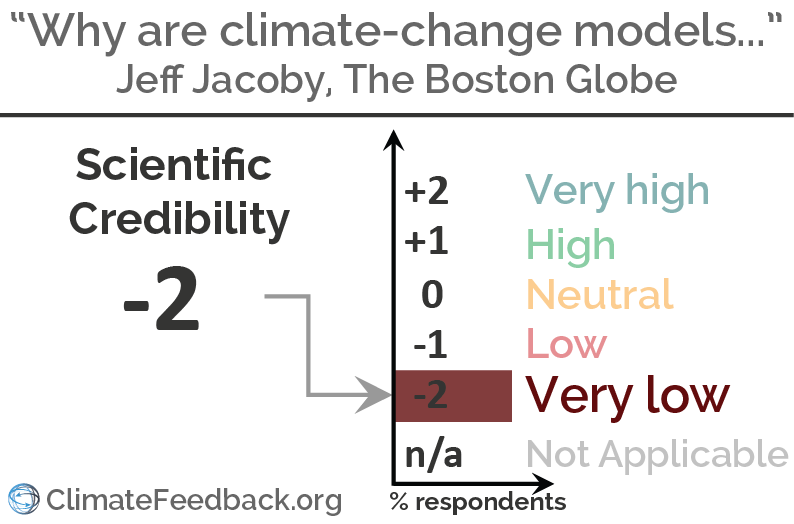
Find more details in the annotations below and in Climate Feedback's analysis
Earth heading for 'mini ice age' within 15 years
Overall scientific credibility: 'low' to 'very low', according to the 6 scientists who analyzed this article.
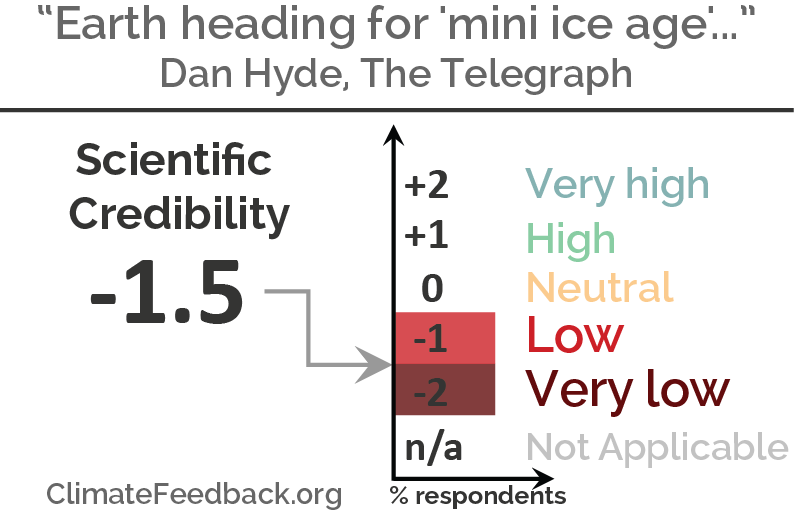
Find more details in the reply+annotations below and in Climate Feedback's analysis
Ocean acidification: yet another wobbly pillar of climate alarmism
Overall scientific credibility: 'very low', according to 6 scientists who analyzed this article.
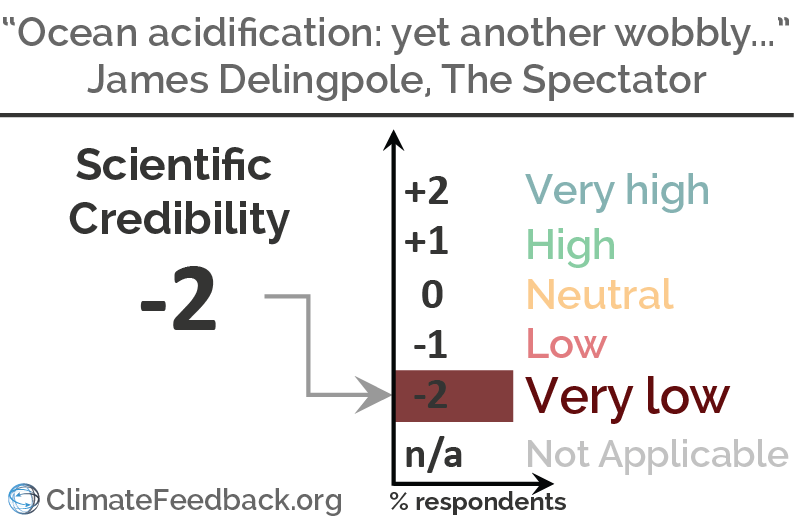
Find more details in the annotations below and in Climate Feedback's analysis
Stunning new data indicates El Nino drove record highs in global temperatures suggesting rise may not be down to man-made emissions
Overall scientific credibility: 'very low', according to 7 scientists who analyzed this article.
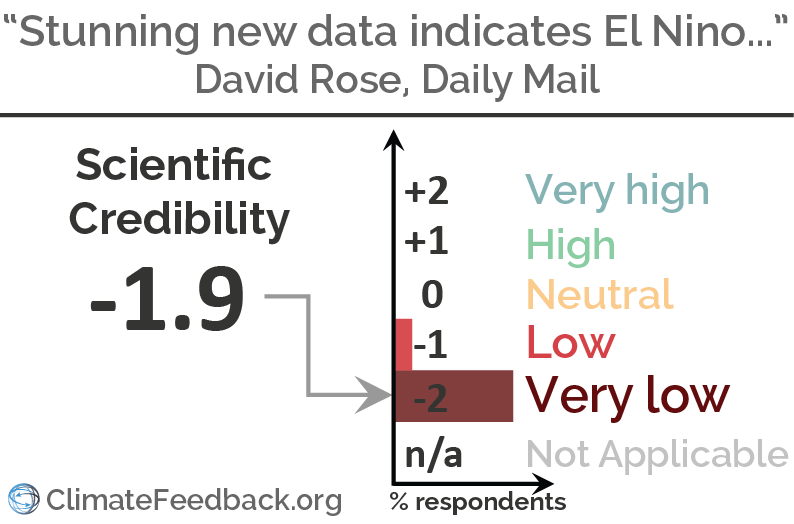
Find more details in the annotations below and in Climate Feedback's analysis
The Phony War Against CO2
Overall scientific credibility: 'very low', according to 6 scientists who analyzed this article.
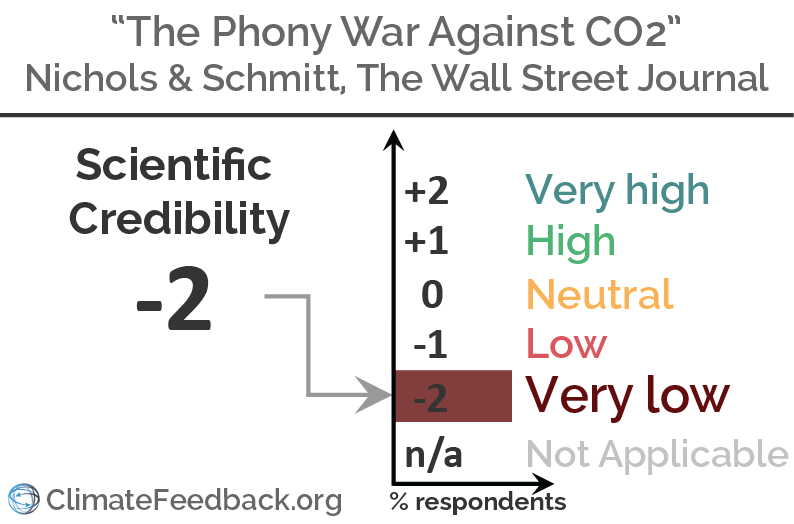
Find more details in the annotations below and in Climate Feedback's analysis
Hillary Clinton Boards The Climate Crisis Train To Nowhere
Overall scientific credibility: 'very low', according to 8 scientists who analyzed this article.
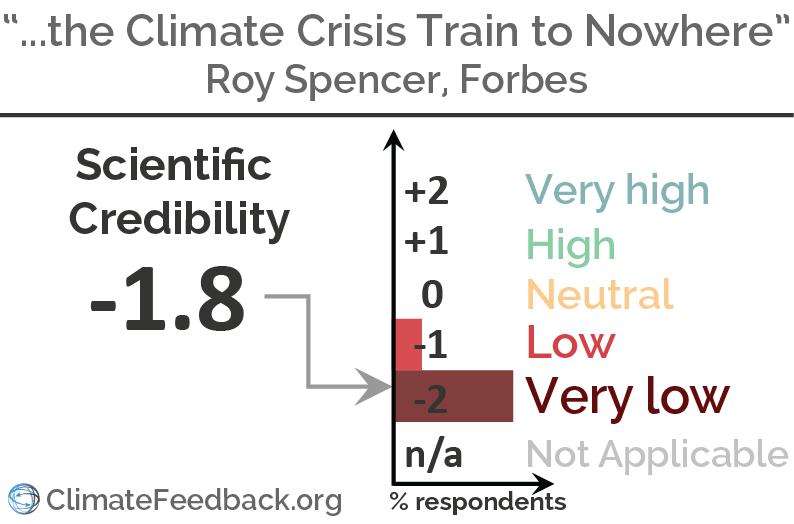
Find more details in the annotations below and in Climate Feedback's analysis
James Lovelock: ‘Before the end of this century, robots will have taken over’
Overall scientific credibility: 'low' to 'very low', according to 5 scientists who analyzed this article.
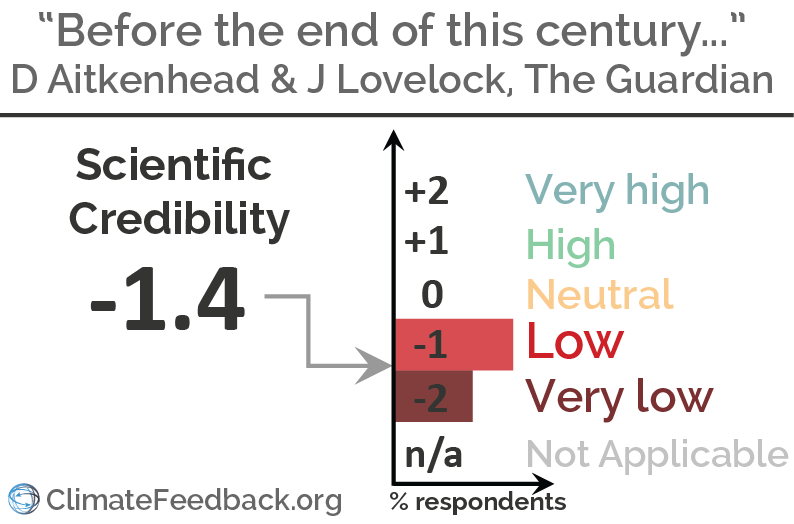
Find more details in the annotations below and in Climate Feedback's analysis
No one ever says it, but in many ways global warming will be a good thing
Overall scientific credibility: 'low' to 'very low', according to 14 scientists who analyzed this article.
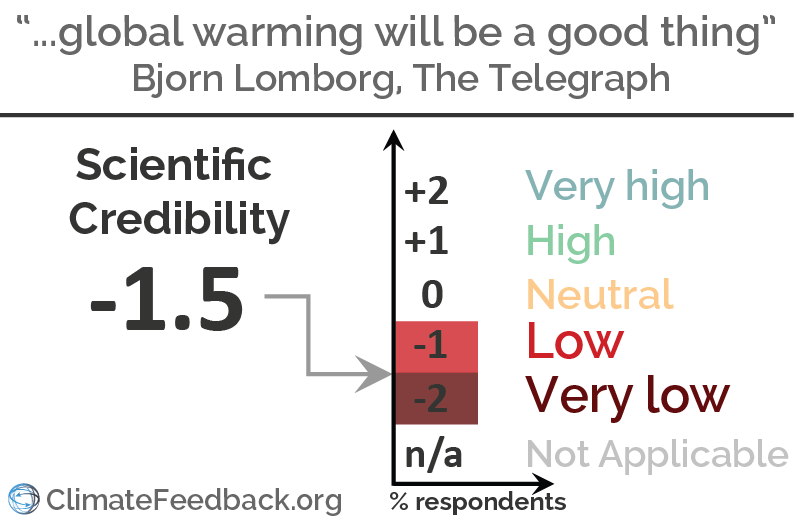
Find more details in the annotations below and in Climate Feedback's analysis
The Climate Snow Job
Overall scientific credibility: 'very low' to 'low', according to 10 scientists who analyzed this article.
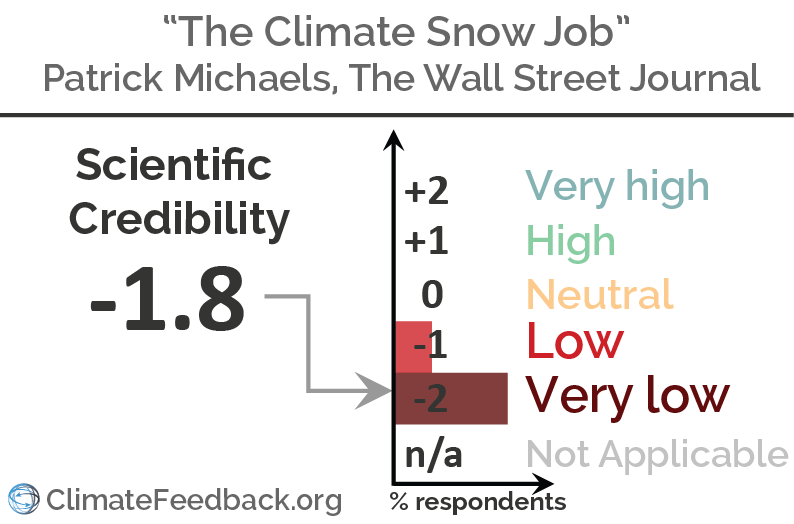
Find more details in the reply+annotations below and in Climate Feedback's analysis
2015 Was Not Even Close To Hottest Year On Record
Overall scientific credibility: 'very low', according to 10 scientists who analyzed this article.
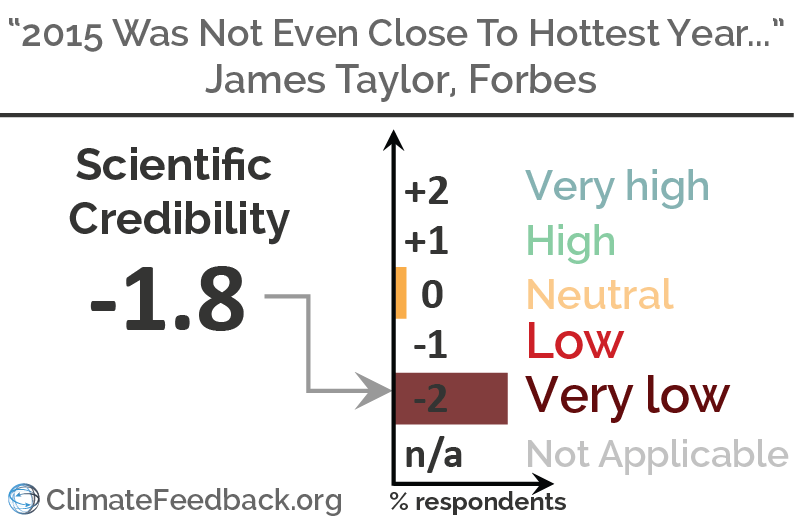
Find more details in the reply+annotations below and in Climate Feedback's analysis
Your Complete Guide to the Climate Debate
Overall scientific credibility: 'very low' to 'low', according to 12 scientists who analyzed this article.
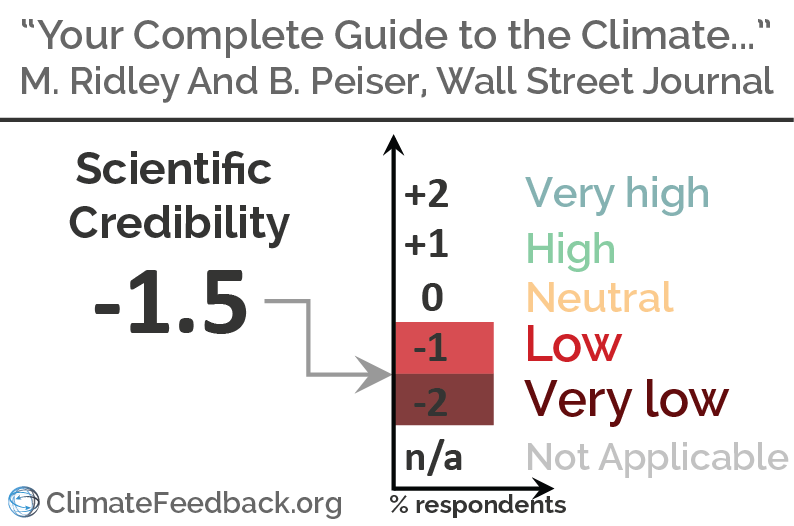
Find more details in the reply+annotations below and in Climate Feedback's analysis
Updated NASA Data: Global Warming Not Causing Any Polar Ice Retreat
Overall scientific credibility: 'very low', according to 9 scientists who analyzed this article.
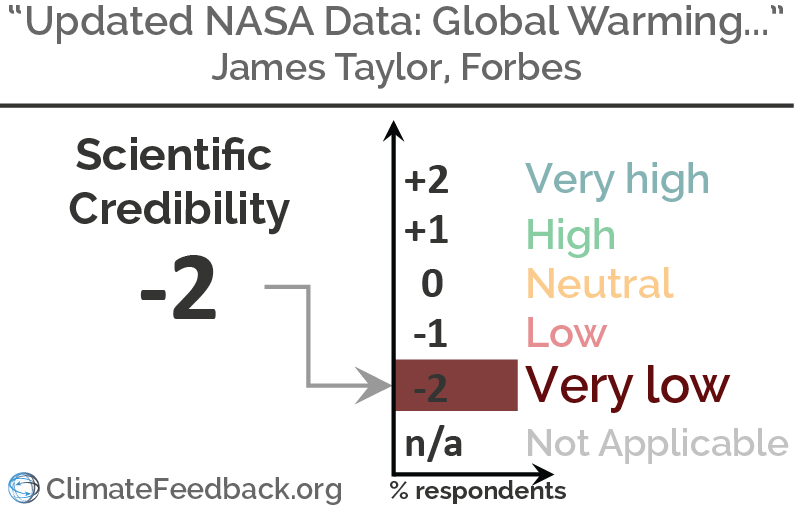
Find more details in the reply+annotations below and in Climate Feedback's analysis
Top 10 Global Warming Lies That May Shock You
Overall scientific credibility: 'very low', according to 12 scientists who analyzed this article.
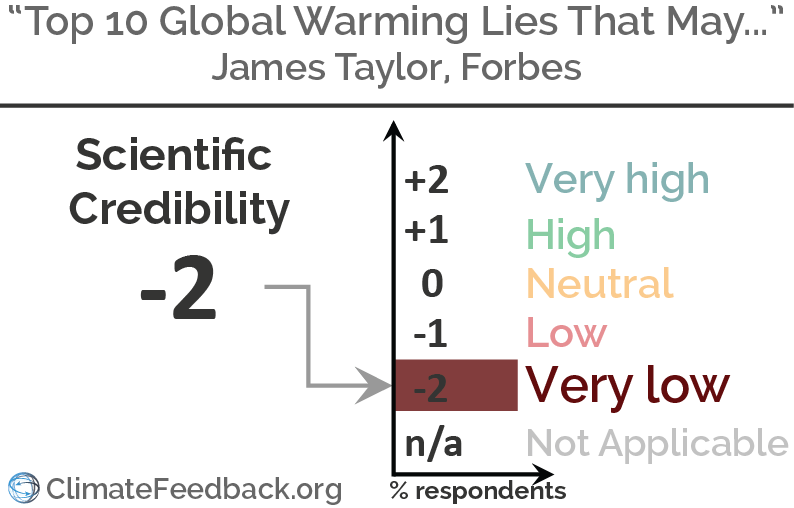
Find more details in the reply+annotations below and in Climate Feedback's analysis
Wake up, Obama, climate change has been happening forever
Overall scientific credibility: 'very low', according to 9 scientists who analyzed this article.
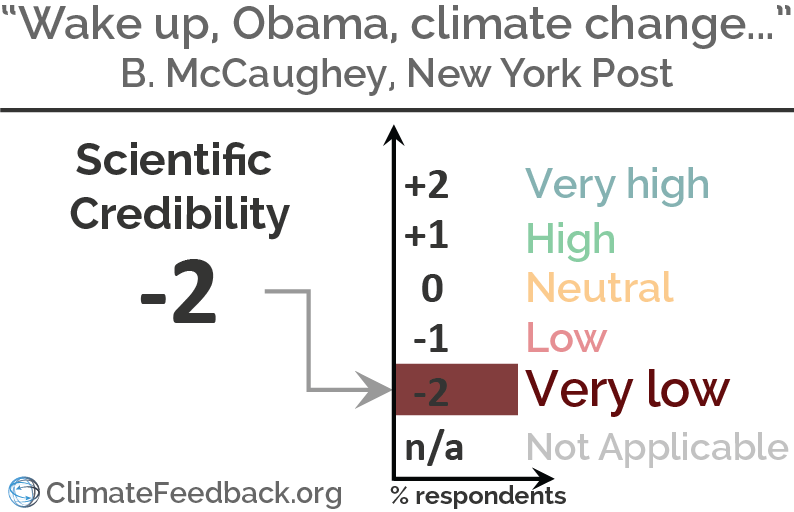
Find more details in the reply+annotations below and in Climate Feedback's analysis
Deceptive temperature record claims
Overall scientific credibility: 'very low', according to 7 scientists who analyzed this article.
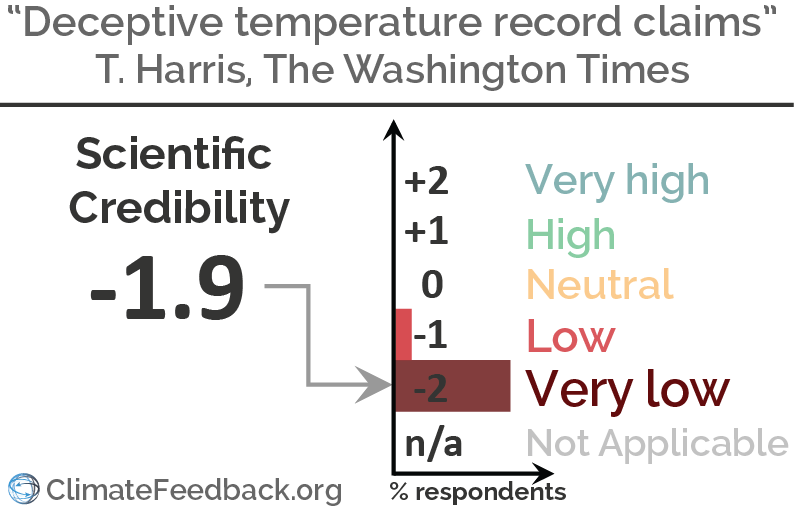
Find more details in the reply+annotations below and in Climate Feedback's analysis
How Arctic ice has made fools of all those poor warmists
Overall scientific credibility: 'very low', according to the 8 scientists who analyzed this article.
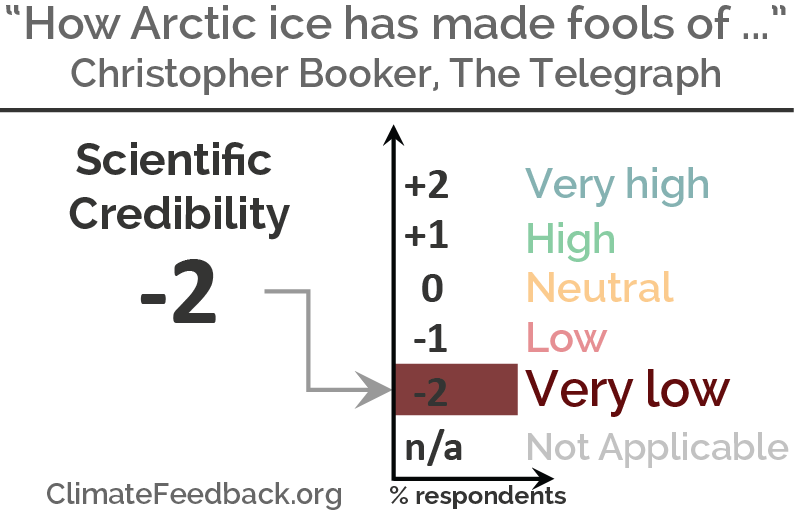
Find more details in the reply+annotations below and in Climate Feedback's analysis
the rate of global sea-level rise 70 years ago was as large as what we observe today—about one foot per century
The rate of sea level rise has actually quadrupled since preindustrial times: the trend was .8 mm/yr from 1870 to 1924, 1.9 mm/yr from 1925 to 1992, and 3.2 mm/yr from 1993 to 2014.
 http://www.columbia.edu/~mhs119/SeaLevel/
http://www.columbia.edu/~mhs119/SeaLevel/
the food ban list supported by Republicans bans organic foods and a great many products that have nutritional value.
The author confuses the WIC program list with this bill. This bill only prevents you from buying shellfish with SNAP benefits, and prevents more than a third being spent on unapproved foods.
The list of “disallowed” foods, which you can view here, also includes the following
This list is for the WIC program, which is different from the SNAP program that the bill is about.
The legislation specifically bans poor people from buying any kind of shellfish, including lobster, shrimp, and crab.
This is incorrect. The bill prevents SNAP benefits being used to buy shellfish, but doesn't ban poor people from buying shellfish outright.
Assembly Bill 177 seeks to ban people who rely on food stamps to survive on a daily basis from buying a huge list of products
This is incorrect for the same reasons given in the above annotation.
a bill that would ban them from eating a multitude of foods
This is incorrect. The bill does not ban people from eating any foods. It bans people from buying shellfish with SNAP benefits. It also bans people from spending more than a third of their SNAP benefits on unapproved foods.
Wisconsin GOP Passes Bill Banning Poor People From Buying Shellfish, Potatoes And Ketchup
This headline is inaccurate. The bill prevents SNAP benefits from being used to buy shellfish, but people are still allowed to buy shellfish with non-SNAP money. The bill also prevents people from using more than a third of their SNAP benefits on food that's not on an approved list, but potatoes are on that list, so people can spend all their benefits on potatoes if they want. Ketchup is unapproved, so people can spend only a third of their SNAP benefits on ketchup.